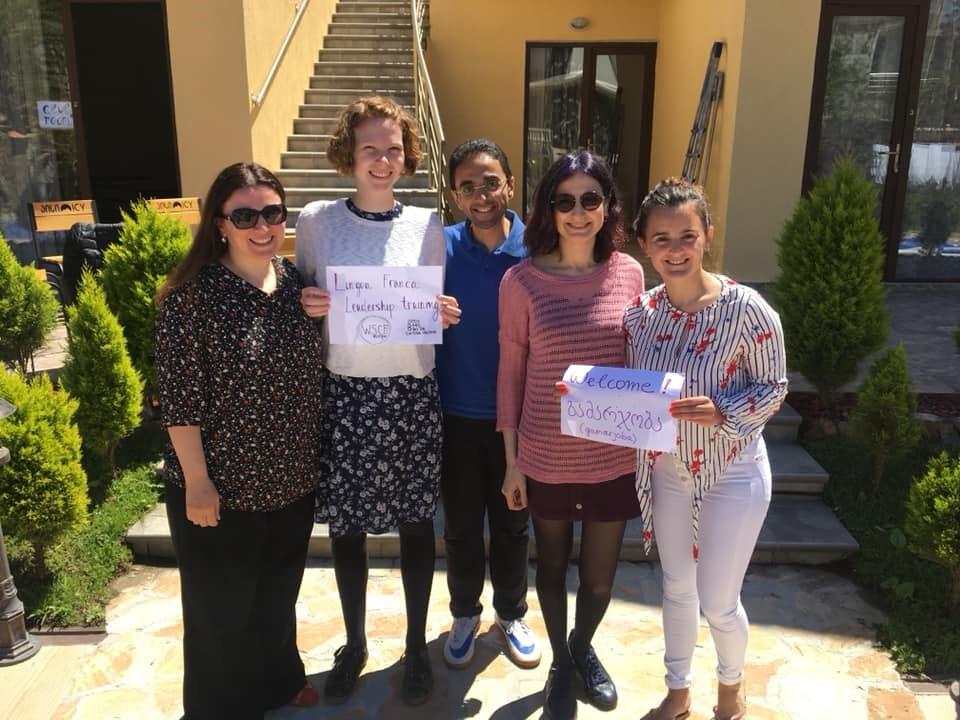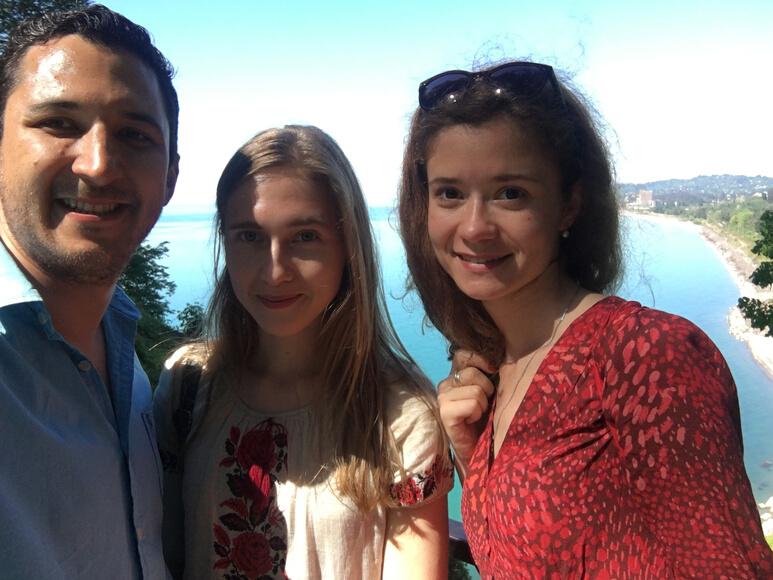
2 minute read
OURACHIEVEMENTS ECUMENICALLEADERSHIP PROGRAMME
As an organisation that aims to bring together Christian students from a variety of backgrounds, WSCF-Europe works with students interested in the spheres of theology and ecumenism. As a result, fostering ecumenical leadership amongst our SCMs and beyond is a key focus of our work.
"LinguaFranca"LeadershipTraining
Advertisement
14-19May2019,Kobuleti,Georgia
In May 2019, we were happy to be able to revive our Lingua Franca Programme, which first took place in 1991. The programme was a one-week long leadership training, focused on the subject of “Shared future, shared responsibilities: empowering a new generation of Europeans”. The training was delivered in Kobuleti, Georgia, and was made possible by funding received from the Otto Per Mille of the Waldensian Church of Italy.
The training brought together 14 participants, from 6 countries in Europe and beyond. The programme was designed as a series of visits to local organisations, guest speaker sessions and sessions in which the participants could learn from each other. The key aim of the training was to bring young Christians, mostly from Central and Eastern Europe, to share and discover different realities, country-specific issues, and to inspire them to get active and promote ecumenism and inclusion in their own communities.
Every day of the programme started with a different reflection, connected to the topic of the day, and each of the participants could share a piece of their home church tradition
Before the training, the participants were asked to collect information and to research their local communities, to understand specific issues that minority groups might face. Sharing those different realities was an eye-opening moment, where participants discovered how diverse our societies are and, at the same time, how a lot of the issues faced by minority groups are common United by these challenges, many of which were shared, participants brainstormed possible solutions and put together action plans to bring forward change in their local communities. The findings of these discussions were included as key recommendations in the Joint Appeal to the European Churches, that the participants produced at the end of the training programme, with the hope to convey the youth voices for diversity, inclusion and tolerance The participants also visited the Catholic Church in Batumi, two Orthodox churches and the International Fellowship of Students in Georgia. Through these visits, they explored the realities / challenges of different religious organisations and minority groups in Georgia
Participants felt that, by offering a safe common space where they could freely express themselves, the training helped them improve their public speaking skills, which they practised through Bible studies, workshops and ecumenical prayers, that were all carried out in an interactive manner. This accepting environment and open floor for anyone to participate made the event constructive and fruitful, giving the whole training programme a healthy and unique atmosphere.
"Themostexcitingpartofthistrainingwasthe opportunitytopracticetheskillsofdeveloping plansandstrategiesfordifferentadvocacy campaigns,onimportantsocialissuesrelevant worldwide,togetherwithanincredible internationalteam.Thethingswelearnthrough sharingourrealitieshelptogetabiggerpicture ofwhatthefutureholdsforusandhowwecan actuallycontributetoit.Greatteamwork, improvementofcommunicationskills,highly informativemeetingsandpracticalactivities gavemeasolidbaseforimplementingreal changesinmylocalcommunityandmade LinguaFranca,inGeorgia,atruly unforgettableevent.”
KatyaPotapenko SCMUkraine
FRAGMENTFROMJOINAPPEALTOTHEEUROPEANCHURCHES:
“Webelievethatitisourroleasyouth,tonotremainsilent,aswearethefutureofourchurchesand are the guarantee of the ongoing faith and of the glorification of the name of our Lord. We believe that nowadays the world needs the church more than ever, because it is facing difficult and crucial challenges regarding freedom, immigration, acceptance and experiences war, famines, hate speech and crimes. The church could take the role of the leader by giving a positive example on how the worldshouldliveinunityforthechurchbybeingtheharbingerofthekingdomofGodonEarth.
But this will never happen without unity within and between the church, without solidarity and tolerance between the churches of different traditions, and we will never reach that goal without having real discussions, shaped by acceptance, honesty and equality, and real integration and inclusionoftheyouthandofalltheminoritygroupsalsoonadecision-makinglevel.











